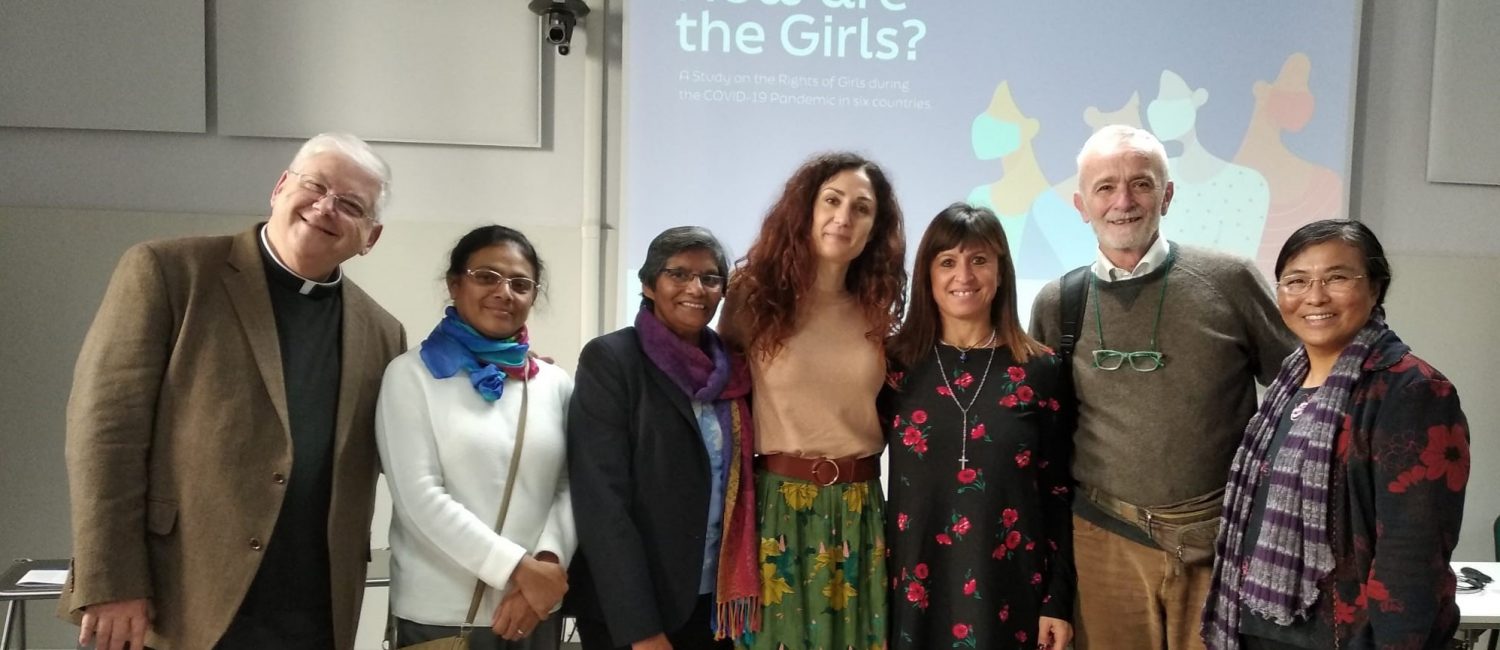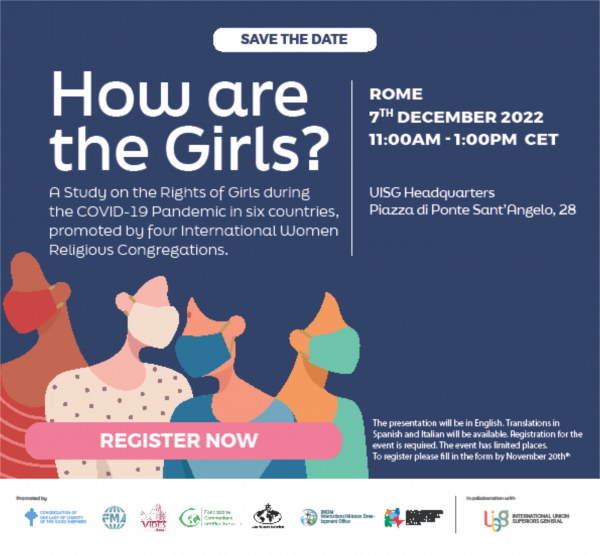
 Four major women religious Congregations presented a study regarding the rights of girls during the Covid-19 pandemic in 6 countries at an event hosted at the headquarters of the International Union of Superiors General (UISG) in Rome on December 7. The Sisters of Our Lady of the Missions, Sisters of Charity of the Good Shepherd, the Salesian Sisters and the Comboni Missionary Sisters – have been collaborating on a study entitled How are the girls?
Four major women religious Congregations presented a study regarding the rights of girls during the Covid-19 pandemic in 6 countries at an event hosted at the headquarters of the International Union of Superiors General (UISG) in Rome on December 7. The Sisters of Our Lady of the Missions, Sisters of Charity of the Good Shepherd, the Salesian Sisters and the Comboni Missionary Sisters – have been collaborating on a study entitled How are the girls?
The study revealed how Covid affected the lives and rights of girls in 6 different countries: Ecuador, Peru, South Sudan, Kenya, India and Nepal. Sr. Patricia Murray, UISG Executive Secretary, explained the importance of the study, noting that it shows us the future, and how we need to respond. “We are getting a snapshot of the world” by the information the girls’ reported regarding their experience during covid. Although Covid has affected everyone, it has had more of an impact on young people, particularly young girls.
An academic research team from the University of Rome “Tor Vergata” and Centre for Economic and International Studies (CEIS), Italy, presented some of the results of the study.
RNDM Sisters of India South under the leadership of Flay Castelino and her local team of sisters and animators joined with the researchers and the Salesian Team to undertake the survey in India. The results of the study showed that girls had less access to education in on-line formats than boys, and that their workload increased more. 35% of girls, reported experiencing “serious hardship” during the pandemic.
The guest speakers who joined on line were, Maria D’Onofrio, Advocacy Officer IIMA & VIDES Human Rights Office, Geneva, Sr. Winifred Doherty, Main Representative to UN, Good Shepherd International Justice and Peace Office, New York, Sr. Alessandra Smerilli, FMA, Secretary of the Dicastery for Promoting Integral Human Development and Eamonn Casey, Misean Cara Project Officer for Human Rights and Advocacy. They supported the piolet survey of the four congregations and emphasized that networking very often makes things happen that would otherwise remain something abstract.
In concluding the event, there are two particularly relevant needs identified in the study are lack of access to technology and mental health issues. Therefore, the four congregations have decided to continue collaborating with each other to address these two needs. Among the next steps that have been identified in the same 6 countries are: new qualitative study on the digital divide, upgrading technological equipment, provide training on the safe use of online platforms and design a program for girls’ mental health.
We are grateful to Misean Cara for the grant support towards realizing this project